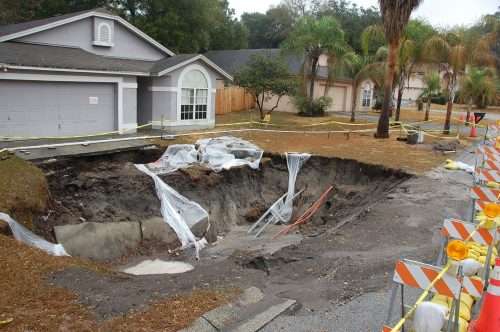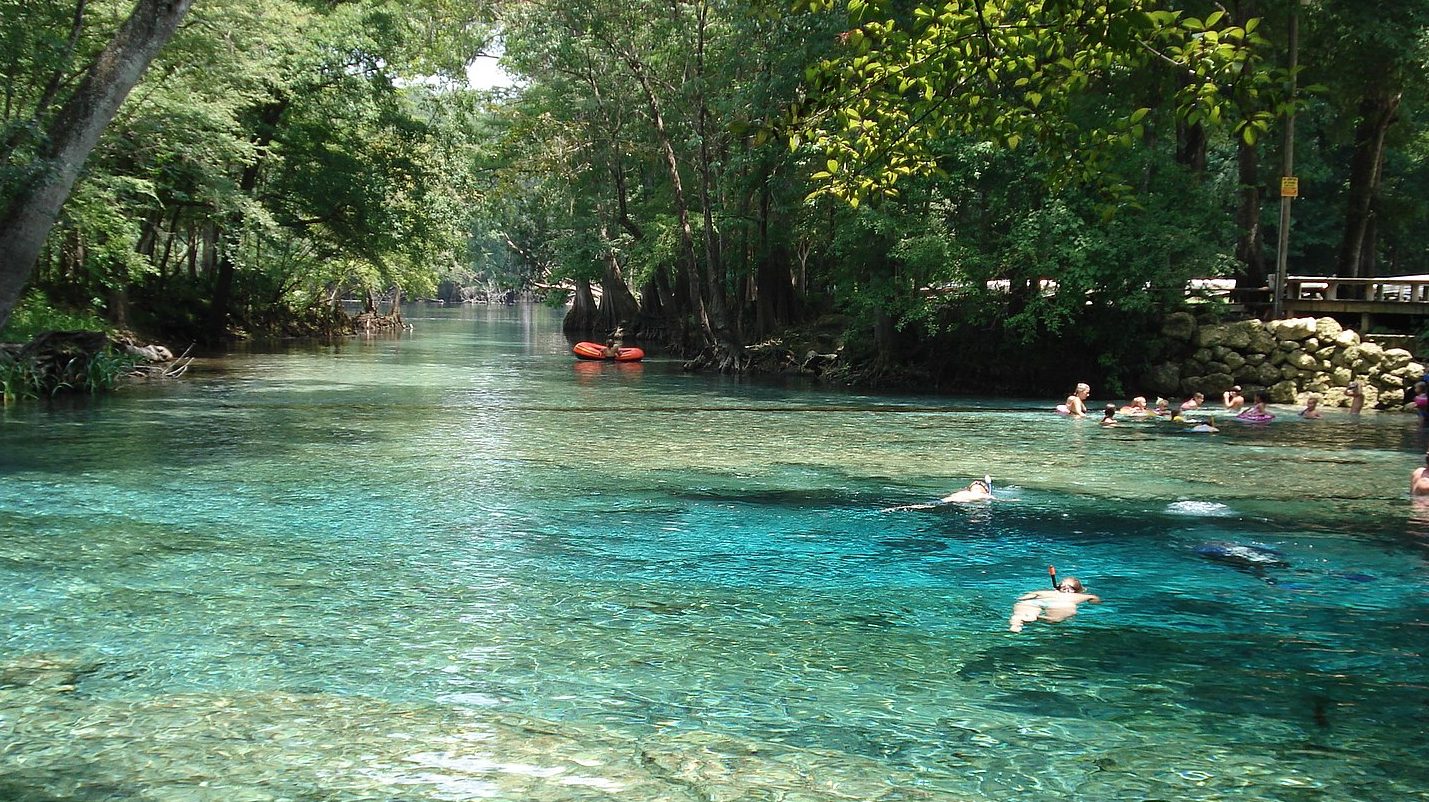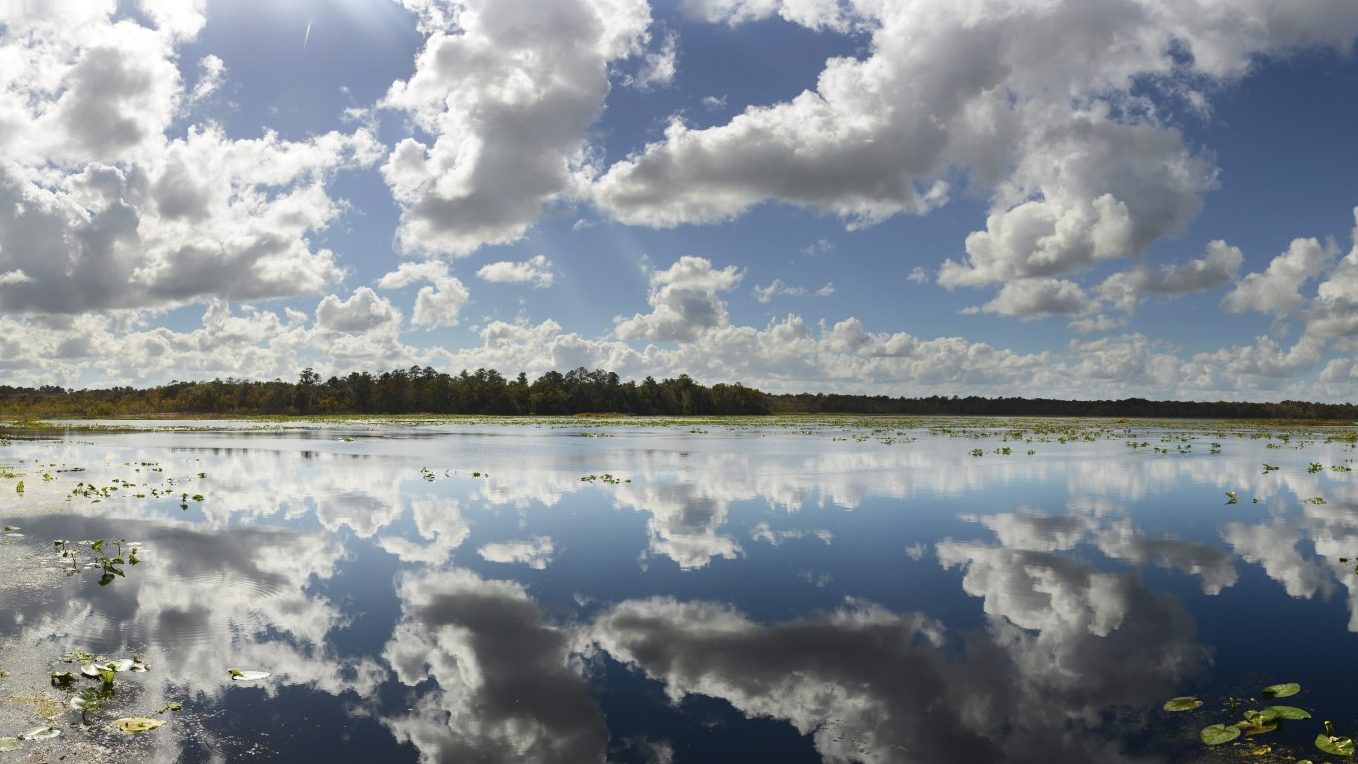This legislative session, lawmakers have been looking at taxes as both a source of revenue and a way of helping home and landowners. Legislators have introduced several bills dealing with tax holidays and credits, as well as a new tax trying to protect Florida’s waters.
- Disaster Preparedness Tax Breaks, State Park Fee Waivers and Insurance Loss Claims
- Water Bottling Tax
- Carbon Farming Tax Credit
It’s Only Natural
Sometimes, it can seem like Florida is trying to kill you. Some policymakers are looking to help residents deal with life in the Sunshine State.
On the agenda: state park annual pass waivers and discounted camping fees for caregivers licensed by the Department of Children and Families; a sales tax exemption for shutters and impact-resistant windows; a sales tax holiday on supplies to prepare for natural disasters; and an amendment to broaden what constitutes “catastrophic ground cover collapse” covered by insurance companies.
State Park Fee Waivers and Discounts: Under HB 853, caregivers licensed by the Department of Children and Families, such as adoptive and foster parents would be given a free state park annual pass for every year they are licensed and would be eligible for 50% off of base camping fees.
UPDATE: HB 853 died in Children, Families, and Elder Affairs.
Sales Tax Holiday for Disaster Preparedness Supplies: Florida has enacted sales tax holidays for disaster preparedness before, but CS/SB 524 would establish a new, 18-day sales tax holiday from May 29 to June 15. If passed, Floridians would have the opportunity to stock up on what the Florida Division of Emergency Management says they should include in their disaster supply kit tax-free.
UPDATE: CS/SB 524 died on Calendar.

Sinkhole and Catastrophic Ground Cover Collapse Insurance: Florida is the state most affected by sinkholes. Florida law requires insurance policies to cover “catastrophic ground cover collapse.” But there are differences between sinkhole and catastrophic ground cover collapse coverages. The latter has stricter requirements for loss claims. SB 904 looks to ease some of those requirements.
UPDATE: SB 904 died in Banking and Insurance.
Florida’s Water Problems Are Staying Bottled Up
Nestle’s plan to draw more water from Florida springs caused an uproar last year. Two bills, HB 861 and SB 1112, would begin to tax companies for drawing water.
If passed, bottlers would be taxed 12.5 cents per gallon of water extracted from Florida’s aquifer—a stark contrast from the current one-time permitting fee, which ranges from $115 to $130.
This bill is attempting to balance water bottling’s net benefit to the economy and its cost to the environment, according to Amanda Phalin, economist and lecturer at the University of Florida’s Warrington College of Business.
“This is a huge increase from what is essentially pennies per year for bottlers,” Phalin said. For her, this may be too large a step in the other direction.
According to Nestle, the company spends more than $125 million a year in Florida and employs over 900 people here. That potential cost increase expectedly raised concerns from bottlers, with a Nestle lobbyist stating that the proposed tax would cost the company more than its $52 million annual payroll expense.
The bill’s sponsor, Annette Taddeo (D-Miami), has stated that water from Florida’s springs is a public good, which is being removed from state waters at an extremely low cost.
One challenge with this type of legislation is determining how to best quantify, in economic terms, the value of natural resources.

“There’s just not enough investment in understanding the value of [ecosystem] services to make effective policy decisions,” said Damian Adams, UF associate professor of natural resource economics and policy.
He says the current cost of pumping water from the aquifer is around 10 cents per thousand gallons. But the cost of permitting and pumping doesn’t account for the full value of the water to the state and its residents.
Springs are an important tourist destination, in addition to being a source of drinking water.
But for Adams, the best thing about the bill is the tax revenue’s destination. The bill specifies that proceeds must go to the Wastewater Treatment and Stormwater Management Revolving Loan Trust Fund to help improve Florida’s aging water infrastructure.
This bill faced considerable opposition from lawmakers and the water-bottling industry and has since been tabled.
SB 1096 and SB 1098 have similar intents. SB 1096 would create a daily fine of up to $500 should a company not pay the 5 cents per gallon fee for extraction for bottling set forth SB 1098. These bills need to be passed together to take effect.
SB 1798 takes a different approach, requiring water management districts to raise those one-time permit fees to at least $1 million, stating that the proceeds must go toward spring restoration.
UPDATE: HB 861 died in the Ways and Means Committee. SB 1112 died in Commerce and Tourism. SB 1096 and SB 1098 died in Environment and Natural Resources. SB 1798 died in Environment and Natural Resources.
Is Carbon Farming Florida’s Next Cash Crop?
Senator Jose Javier Rodriguez (D-Miami) introduced SB 286, a bill that would provide a tax credit to landowners for carbon farming, the process in which agricultural and undeveloped lands store atmospheric carbon in the ground.
“Agricultural and forest lands provide vital ecosystem services (e.g., water quality, water recharge, wildlife habitat, air quality, soil formation, recreation, carbon sequestration and biodiversity) that are likely worth far more than the commodities they produce,” reads a statement on SB 286 from Damian Adams, Xiang Bi, and Kelly Grogan from the UF Institute of Food and Agricultural Sciences food and resource economics department and the UF School of Forest Resources and Conservation.

The bill looks to compensate landowners for those services in the form of a tax credit. It proposes using the COMET-Farm planning tool to assess the economic value of those services, but the statement authors warn that this tool is too coarse to guide Florida forestry and agricultural best practices.
Adams feels this is a step in the right direction, but could backfire if not carefully crafted. Some potential pitfalls include incentivizing short-term changes that only marginally impact carbon sequestration, changing habitat for native species or prioritizing the wrong ecosystem services in vulnerable areas, like planting water-intensive trees at the expense of recharging the aquifer.
“Managing land for ecosystem services is good, but we need a more comprehensive review of what these lands are providing,” Adams said.
While most of these bills have a difficult road ahead, Adams welcomes the increased focus on environmental stewardship in this legislative session, regardless of the outcomes.
UPDATE: SB 286 died in Agriculture.